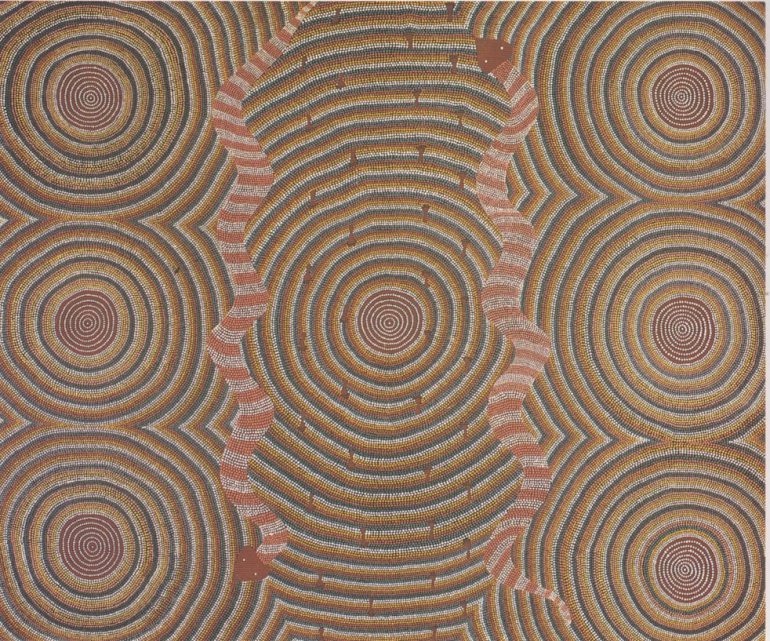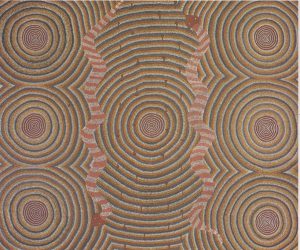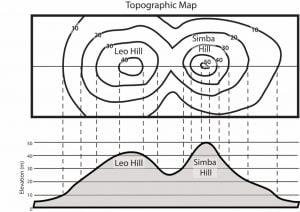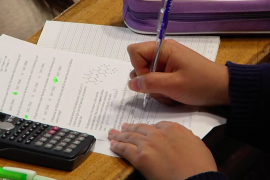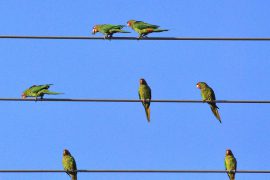By Gulnaz Beg (student ambassador), with Tom Hubble.
We participated in the 2016 ‘Students as Partners for Cultural Competence’ project, designed as collaboration between student ambassadors and unit coordinators of five units of study. The unit Introduction to Geology (GEOS1003) is a first year earth science subject, which provides students with an overview of the study of geology. The approach taken was to subtly incorporate cultural competence throughout lecture materials and excursions, in a way that would be engaging for students. The project ran for one semester and we regularly sought the opinions of students enrolled in the advanced stream of the unit during the semester. The subtle changes introduced as part of the project included a combination of adding material to lectures taught by Tom Hubble (who included an Acknowledgement of Country in the first lecture and referenced Indigenous views and knowledge about landscape, past environments, and extinct fauna), and modifying the activities undertaken during a day-long field-trip to the Blue Mountains to highlight the similarities and differences between the way Traditional Owners and geologists read and interpret the landscape. A student commented:
I think there was one lecture where Tom was sharing an Aboriginal painting and how it was similar to contour lines on a map. I think that was a really interesting way to bring in cultural competence within the unit.
The student ambassador for the project, Gulnaz Beg, was introduced to the advanced class in week 3 and outlined the timeline of the project and how it would be implemented throughout the course of the semester. Surveys were distributed at the conclusion of the study to the advanced students. In week 13 of semester 1, Gulnaz facilitated a focus group discussion about successful outcomes and suggestions for improvement.
The survey aimed to gain a greater understanding of students’ perceptions of the importance and relevance of cultural competence within academic and corporate environments. A total of ten out of 15 students answered all questions within the survey, with 100% of students agreeing with the statements:
Do you think that cultural competence is important in the workplace?
Do you interact with people of cultural diversity within this uni and other units in your university degree?
Do you think it is important to develop cultural competence skills early in university?
Students had mixed responses about whether they thought the incorporation of cultural competence was appropriate within GEOS1003, for example:
- ‘Probably not as much as science tends to be more focused on universal processes rather than cultures, but it is still interesting to know.’
- ‘Yes, as a lot of geological objects have cultural links that may be mentioned very briefly.’
- ‘Yes, as we have to make sure not to go on any cultural boundaries.’
- ‘Yes. Cultural competence is crucial to all areas of studies.’
- ‘It’s more useful in practical situations rather than just in the lectures. When it comes up in a lecture not everyone tunes in. But once we’re out on the field in a practical sense where we are exposed to cultures and ideas, that’s where the real benefit will come in rather than just sitting in a class room and going over some content.’
Aspects that we will investigate in future semesters include creating something similar to the trivia developed by Ehssan Sakhaee and Roman Eymont in Project Management. Another suggestion would be to have a greater Indigenous voice within the course such as having guest Indigenous speakers or incorporating dreamtime stories to complement European methodologies – this was also suggested by some of the students in the focus group. Our approach did not focus on communication skills and intercultural communication, and so this is another possible area of focus in the future.

